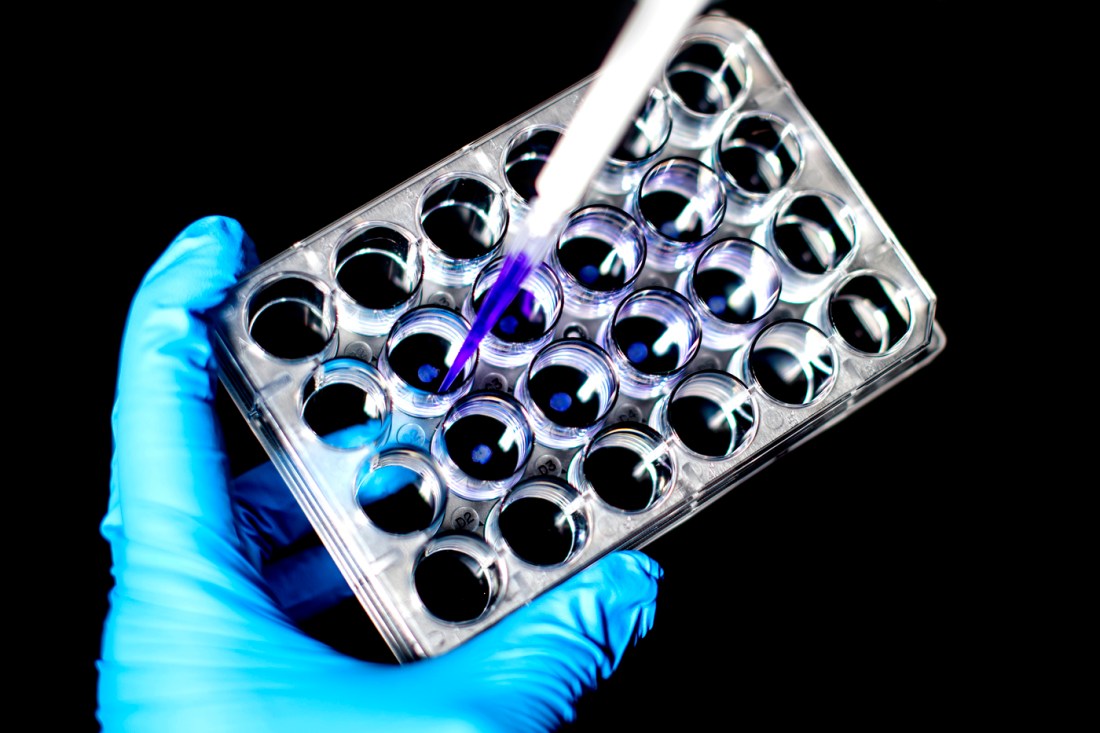Center for Bioinnovation combines AI-driven analytical tools with industry opportunities
Led by CPS dean Jared Auclair, the center will specialize in analytics to keep pace with modern developments in biotech — and partner with the industry on educational pathways from middle school to graduate study.

Jared Auclair’s dozen years and nearly as many roles at Northeastern University have a common thread: the combination of vital research and real-world opportunity.
“The entities I’ve operated have been about upskilling, reskilling and use-inspired research on a small scale,” says Auclair, dean of Northeastern’s College of Professional Studies.
Now, he’s expanding that work as director of the newly launched Center for Bioinnovation, an initiative with the self-described goal of “bridging the gap between academic research and the rapidly evolving biotechnology industry.”
First, the research side of that mission: As biotech develops ever more advanced, personalized therapeutic treatments — antibody drug conjugates, cell and gene therapies, mRNA-based platforms, synthetic biologics — analytical tools must match them in complexity.
In Auclair’s view, that presents an opportunity to tie together the whole lifecycle of a product — from research and discovery to development, commercialization and regulatory approval.
“We’re seeing an explosion in the complexity of biotherapeutics, and the analytical tools to characterize them haven’t kept pace,” he says. “Our mission is to develop the next generation of analytical methods and train the workforce needed to bring these lifesaving treatments to patients safely and efficiently — to paint a larger picture linked to data, and [figuring out] what role AI will play in that future.”
On the educational side, the center will leverage CPS’ resources and corporate partnerships to provide scientific education, training and credentials at every academic level.
“In the College of Professional Studies, we’ve built a learning pathway in the life sciences from middle school to apprenticeships, bachelors and masters and Ph.D.s,” he says. “This gives us a platform to drive additional partnerships with small and large companies across the life sciences spectrum.”
For example, the center has a grant from biotech giant Amgen to run professional development workshops focused on biotech for middle and high school teachers. Through partnerships with organizations like the Massachusetts Life Sciences Center, Northeastern can offer technical training for registered apprentices.
“A company hires them, we do the training, then they go work,” Auclair says. “Assuming all goes well, they stay with the company after that. Or we help them get an associate’s degree or a bachelor’s degree. You have this continuum where you can stack credentials.”
With its robust health care, life sciences and technology industries, Massachusetts is an ideal proving ground for the center’s mission. But Auclair is thinking about ways that could translate across Northeastern’s campus network.
“The physical infrastructure is in Burlington. But how can we do similar things in Oakland, which is at the intersection of San Francisco’s biotech hub and Palo Alto’s data hub?” he says. “What’s possible in New York City?”
